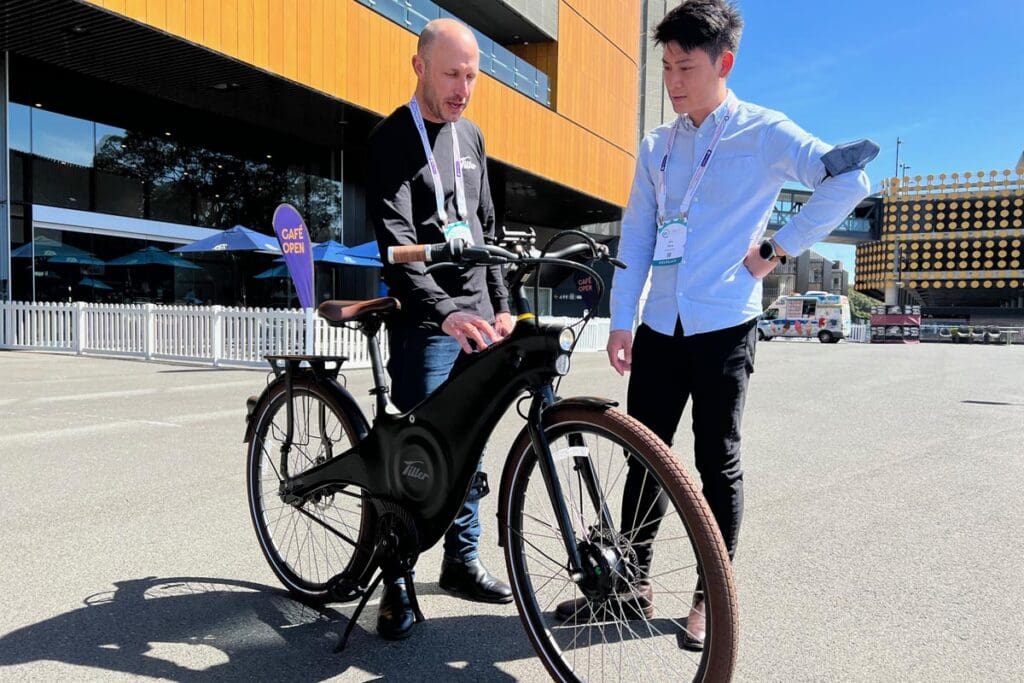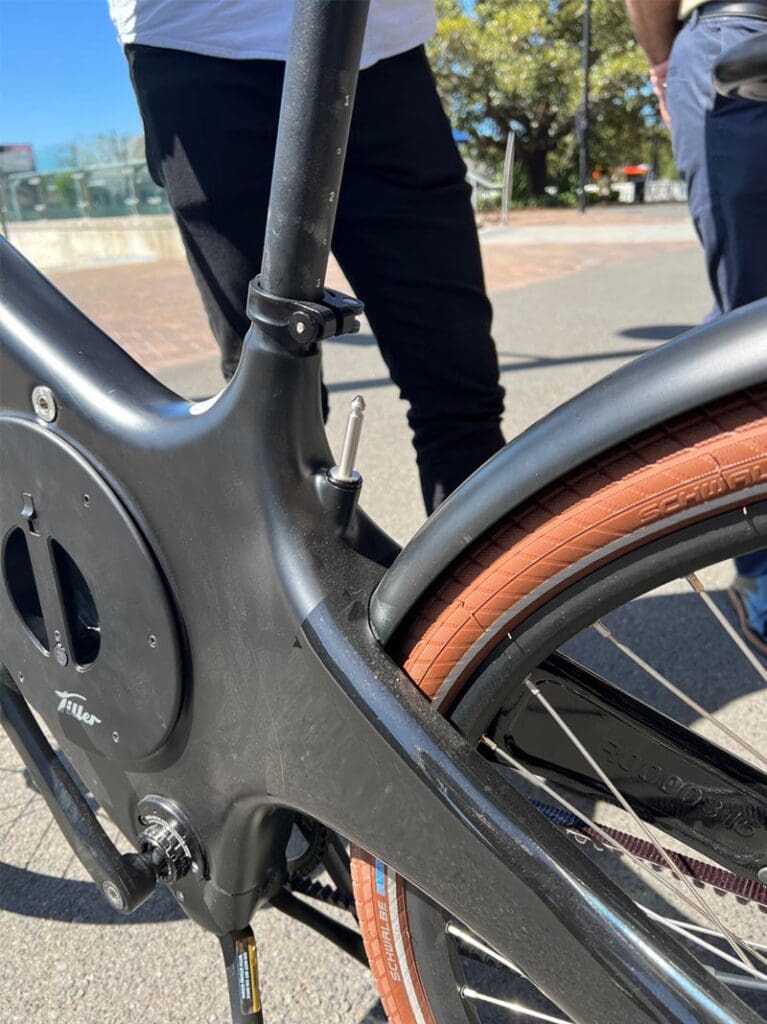Tiller Turning to Investors to Save Roadster Project

Fremantle, WA
A WA-based premium e-bike developer, Tiller Rides, has opened the door for an investor or buyer to keep its program on track, after the company went into voluntary administration last month amid a series of adversities in the economic climate.
Costly production delays caused by Covid restrictions, followed by a tightening financial market, slowed the final stages of Tiller’s development of its Roadster e-bike and derailed its market launch, according to company founder and CEO Julian Ilich.
He said the delays in fulfilling pre-orders and implementing Tiller’s planned branding and marketing campaign significantly impeded anticipated revenue streams, forced a rationalisation of staff and ultimately led to the decision to enter voluntary administration.
“We are now out seeking a person or business in Australia, Europe or elsewhere with experience in taking a product like this to market, to either take a majority share of Tiller or buy the business and/or the Roadster’s production line outright,” Julian said.
The company achieved a major milestone late last year when it started deliveries of its highly integrated, monocoque Roadster. Over the past few months, it has delivered all of the 250 pre-orders for the bike.
However, Julian has now given the company until the end of this month to attract a partner or buyer to keep the program going.
“We’ve invested seven years of hard work and more than $5 million into this project and we’re dedicated to seeing it come to fruition but we would need to have something in place by the end of April,” he said.
“It’s been a combination of factors but our current situation largely stems from an eight-month delay on delivering bikes because Covid restrictions would not allow us into China to finish refining the production process.
“That was eight months of having to keep the company operating and those funds came straight out of our marketing budget,” he said.
“In the end we had to say ship the bikes out here anyway and we’ll deal with any remaining quality issues once they get to Australia.
“While we were rationalising staff to address mounting costs, most of our remaining staff were then redeployed to that assembly process here in Australia.

Healthy Initial Sales
“At one stage last year, we were selling around a bike a day but that slowed this year because we’d redirected our resources away from our planned branding and marketing that would have built a buzz and interest in the product.
“Our priority had been to just get product out on the roads because that was a big part of our marketing plan.
“We’ve experienced what I call long Covid for start-ups. While we technically got through the pandemic, the hangover effect of long delays meant we’re constantly doing stuff to keep going that takes you away from the tasks you had planned and really should be doing do keep moving forward.”
Tiller launched with ambitions to be the Tesla of micromobility, featuring its Roadster e-bike at last November’s Micromobility Conference in Sydney as the company embarked on its east coast pre-order deliveries.
Its business model has followed the approach of Amsterdam e-bike company VanMoof, by keeping as much control over the production of its bikes as possible. That included establishing dedicated production lines in Chinese, maximising the number of bike parts created inhouse and engaging two former Microsoft technicians to develop Tiller’s own electronics for the entire bike.
Roadster Features
They developed a control switch integrated with both the alarm system, to maximise security, and the bike’s Bafang 250-watt front-hub motor, which Tiller chose largely because it’s so quiet and fitted the company’s quest to create an e-bike that is “like an Apple product”.
Similarly, the Roadster’s distinctive monocoque aluminium frame is central to Tiller’s goal to create an e-bike that is fully integrated, stylish and a transportation option that has appeal beyond the traditional cycling community.
The frame incorporates the bike’s keyless motion-sensing alarm system, all the electronics, a front light, a rear light with an automatic brake light, a built-in cable lock, sturdy double stand, rear carrier rack and USB port.
At the heart of the frame is a round removeable lithium-ion battery that complements the bike’s overall aesthetic and was developed in collaboration with a leading manufacturer that also creates batteries for Honda.
Tiller also opted for a belt drive system to further create a low-maintenance bike suitable for riding in any clothing, to broaden its appeal.
Julian said Tiller’s effort to recover from the Covid hold-ups has been hamstrung by a tightening finance sector, not to mention rising costs of living putting a squeeze on household budgets.
“I was talking to an experienced investor today who said there has only been one other time in his career – and he’s around 50 years of age – when access to equity has been as hard to secure as it is now,” he said.
“We’re really looking for a partner or a buyer who knows how to build a brand, who can say ‘This is simple. These are the steps we need to take’.
“With that kind of investor, by next summer we would be generating some really big revenues.
“It might be an electric car or clean mobility business wanting to get into the e-bike game quickly. or another e-bike brand that has a couple of existing models and is looking to add a high-tech model without the need to spend three or four million to develop a new product.”
Further information is available by contacting Julian Ilich on 0400 608228 or julian.ilich@tillerriders.com.
